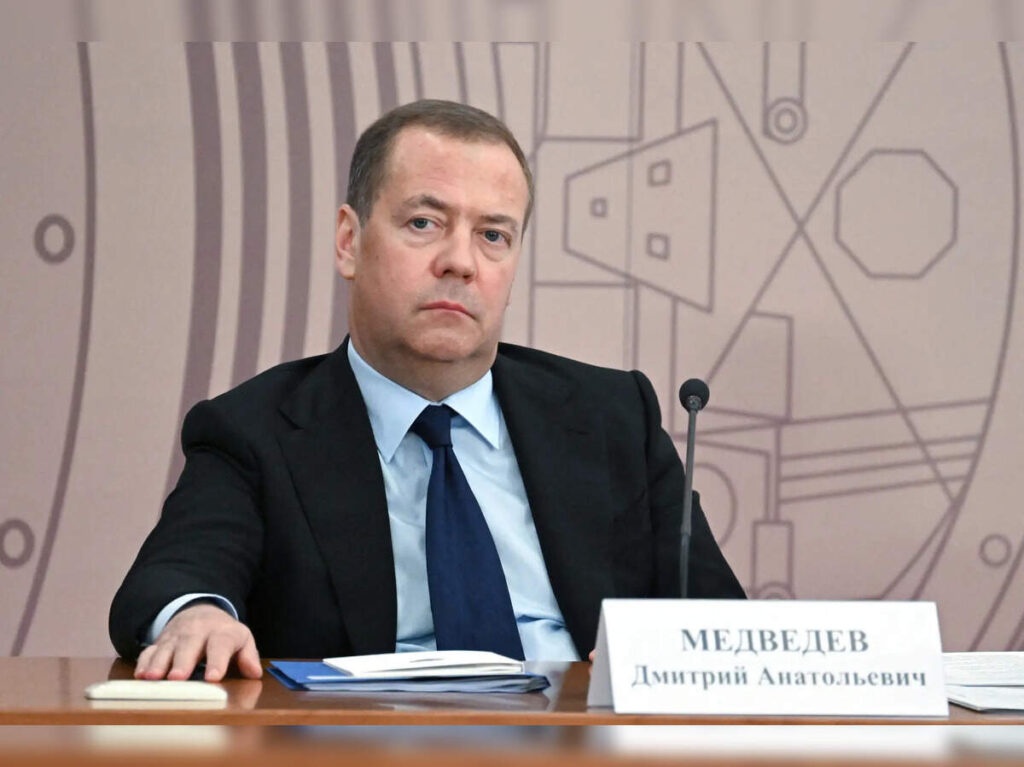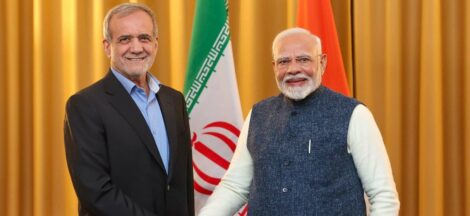
A powerful warning has emerged from Moscow, as Dmitry Medvedev, deputy head of Russia’s Security Council, asserted that multiple nations are prepared to deliver nuclear warheads to Iran. He characterised the US air raids on Iran’s nuclear facilities in Isfahan, Natanz and Fordow as counterproductive, reinforcing Tehran’s resolve and galvanising fresh support.
Medvedev, who held the Russian presidency from 2008 to 2012, emphasised on X that the US strikes failed to damage Iran’s underlying infrastructure and instead prompted a reversal in their aim. He warned: “A number of countries are ready to directly supply Iran with their own nuclear warheads”. Though he stopped short of naming these backers, his message implies a surge in proliferation risks.
Russia’s Foreign Ministry decried the strikes as unlawful under international law and cautioned against escalation. Kremlin spokesman Dmitry Peskov reiterated that existing strategic cooperation with Iran excludes defence obligations and that Russia’s position emphasises diplomatic pathways.
Tehran has condemned the military action as an “outrageous violation” and mobilised its foreign minister, Seyed Abbas Araghchi, to engage with President Putin in Moscow. Despite fiery rhetoric, analysts note Russia is unlikely to engage militarily due to its commitments in Ukraine and lack of formal defence treaties.
While China and groups aligned with Tehran—such as Hezbollah and the Houthis—have denounced the US offensive, only the Houthis suggested possible military action. Hezbollah, still managing conflict weariness, abstained from immediate retaliation.
Experts at the Institute for the Study of War and the American Enterprise Institute highlight a troubling trend: the strikes may accelerate Iran’s nuclear ambitions. Comments from Medvedev lend credence to concerns that, rather than deterring Iran, the US action could prompt proliferation from sympathetic states.
The US framed its operation—dubbed “Midnight Hammer”—as decisive, deploying B‑2 stealth bombers armed with massive GBU‑57 bunker‑buster bombs and submarine‑launched Tomahawks to Inflict “extremely severe damage” on the three nuclear sites. President Trump hailed the campaign as a “very successful attack”. Contrarily, Iran asserts the damage was minimal and no irreversible impact was observed.
The strike marks the first direct US military engagement in the Iran–Israel conflict, which ignited earlier this month amid Israeli bombardments targeting Iran’s nuclear infrastructure. Western powers have reacted with mixed messaging: some endorsing the strike to hinder Iran’s nuclear capabilities, others—especially European allies like the UK, EU, France and Germany—urging restraint and a return to diplomacy.
At the United Nations, Secretary‑General António Guterres expressed deep concern over force, warning of uncontrolled escalation and calling for member states to recalibrate toward negotiation.
Within Russia, nationalist voices urge stronger support for Iran. Igor Girkin, a hardline commentator, warned Iran faces destruction if aid from Beijing or Moscow remains insufficient. Meanwhile, Kremlin-advisor Fyodor Lukyanov described President Putin’s approach as cautious, cautioning against hasty military involvement beyond diplomatic posturing.
The calculus in Tehran appears to be shifting. With allegations of renewed nuclear weapon plans, a surge in domestic support, diplomatic outreach to Moscow, and the spectre of outside nations supplying warheads, the potential for proliferation and regional destabilisation is rising, with profound global implications.




 Rubio turns to China to avert Hormuz crisis
Rubio turns to China to avert Hormuz crisis 